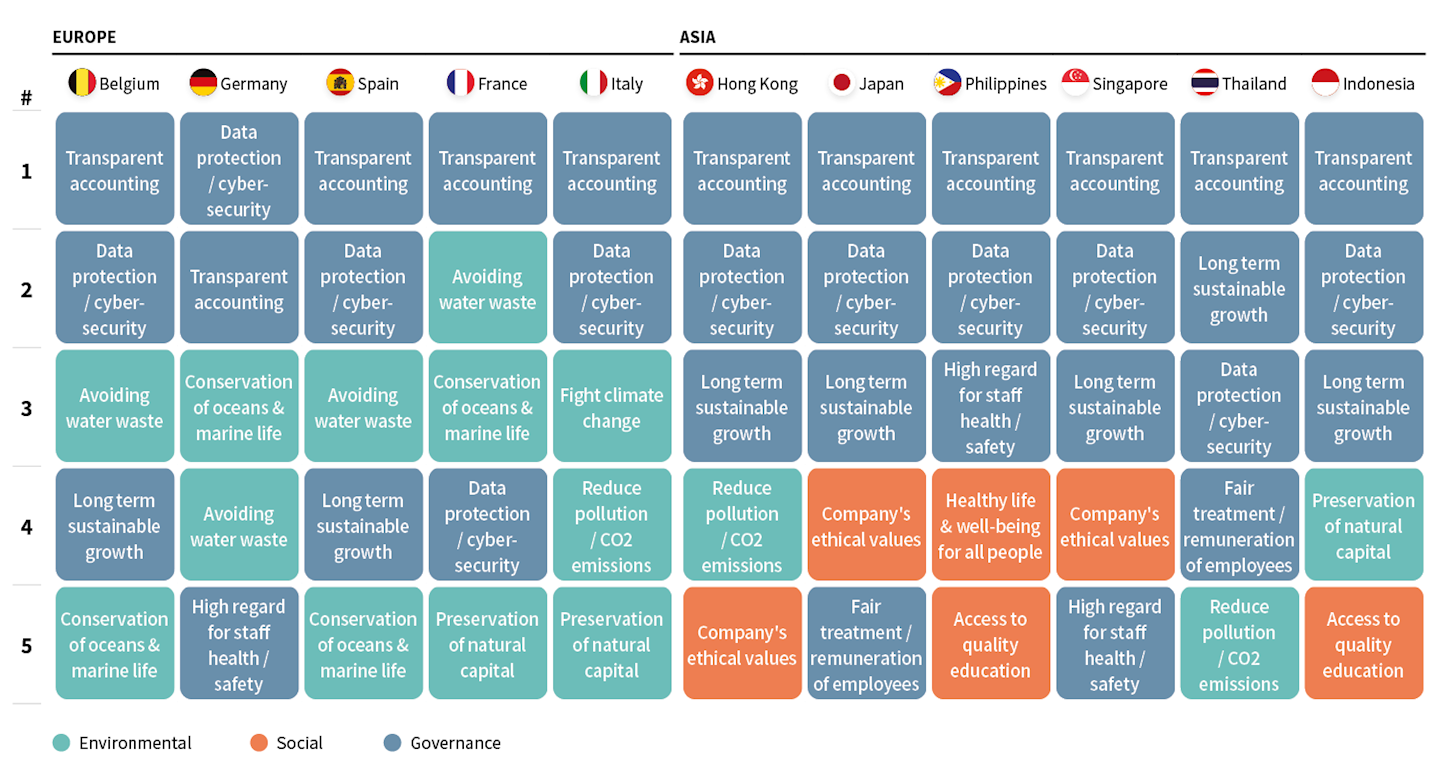You are using an outdated browser. Please upgrade your browser to improve your experience.
Article | 11 August 2021 | ESG
This is an important question and will become increasingly important over time. How can we be sure that any solutions we develop really reflect what people think of as important? ESG is often positioned, either explicitly or implicitly, as “green” – and while this is clearly important to many people, ESG is far more than just “green”.
Indeed, when asked to consider a wide-ranging list of environmental, social and governance factors, it is a governance factor – honest and transparent accountancy practices – that is viewed as the most important in both Asia (82%) and Europe (76%). It is also viewed as the most important ESG factor across all but one of the survey countries in our global study of 11,000 end-investors and prospective investors.

The second most important ESG factor across Asia and Europe regions is data-protection and cyber security (80% and 74% across the two geographies respectively). That governance is viewed as being so important is perhaps natural. High quality corporate governance is a foundation of trust when investors are parting with their money. Investing in well-run businesses could be perceived as basic business hygiene. After all, upholding fiduciary duties (looking after client money) and ensuring protection of personal data are legal requirements. However, across the industry, governance factors are very much the unloved cousins of environmental and social factors, but they are to be ignored at your peril.
Beyond the top two factors which are consistent across Asia and Europe, differences begin to emerge between the two regions. The third ranked most important or vital factor in Asia is the degree to which business growth looks sustainable over the long term (79%), while in Europe it is the conservation of oceans and marine life (72%). In Asia, this reflects wider findings that show Asian investors are more strongly influenced by the possibilities of high returns.
What the findings ultimately demonstrate is that people in different parts of the world place importance on different factors. Beyond good governance, European investors typically select environmental factors over social factors. In Asia, social factors are comparatively more important – particularly those relating to a company’s ethical values and supporting healthy lives. This is perhaps a reflection of the different stages of economic development within each market and the cultural importance and media attention given to different issues.
Historically, ESG activity has been weighted towards North American and Western European markets, but as ESG investing rapidly emerges in other parts of the world, investment firms must address the pressing social and environmental concerns in local markets in order to fully resonate with local investors.
Understanding investor needs will also be an ongoing process. In 2020 the global Black Lives Matter movement brought new focus to diversity and inclusion. In response, many businesses have since showcased to their customers what they do to support a progressive agenda. Social movements of this nature will continue to drive the end-investor mindset.
Likewise, the global pandemic could see new investor ESG priorities emerge. Covid-19, and its impact on communities globally, may place growing attention on social and governance factors and the critical role they play in mitigating future pandemic risks.
What all of this really means is that we must continue to know our customers to ensure we act on their behalf in a way that truly mirrors their own attitudes.
See the full results of our ESG investing research here.